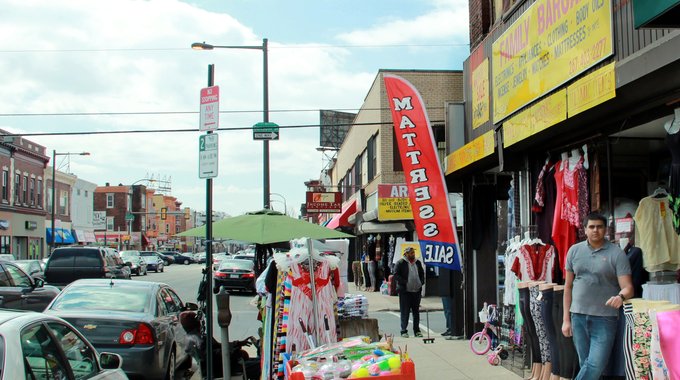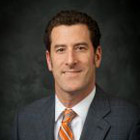Tuesday might have been President Obama’s last State of the Union address. But he made it clear that the work needed to lift families out of poverty is ongoing. LISC’s Matt Josephs considers the president’s remarks from a community development perspective, looking at programs that improve the quality of life in places where Americans struggle to make ends meet.
It is no surprise that last night’s State of the Union address was short on the policy proposals and agenda-setting pronouncements that often underscore these speeches. But, in pointing to key ongoing challenges, President Obama, with less than a year left in office, gave some marching orders to those of us focused on community development: create economic opportunity for people who have been left behind and take on the deeply entrenched inequities that destroy quality of life.
That doesn’t start on Capitol Hill or in the White House—though public policies are certainly the framework to make progress. For LISC, it starts in our neighborhoods, working with people who understand all too well what happens when hope and growth fall by the wayside.
These places need new businesses to help revitalize commercial corridors and create jobs. That makes communities safer and more prosperous. At LISC, we’ve tapped programs at the Small Business Administration to help entrepreneurs get established in places they might not otherwise go. The stores, medical centers, theaters and restaurants that follow build economic vibrancy.

And yet, if that’s all we do, we will fall short. It’s clear that individual economic security, especially for the most vulnerable populations, requires special focus. The president has spoken passionately about income inequality and the threat it poses—an issue we see every day in the thousands of people who seek support at LISC Financial Opportunity Centers (FOCs) across the country. Our network of 80 FOCs wrap a set of employment and financial services in long-term financial coaching to help people grow their earnings and secure their future. LISC could not have grown that network with without support from the federal Social Innovation Fund (SIF) at the Corporation for National and Community Service.
Indeed, with a new SIF grant, LISC expects to bring “Bridges to Career Opportunities", a related pilot, to scale. When the president said last night that “real opportunity requires every American to get the education and training they need to land a good-paying job” this is what he meant. The Bridges program helps FOC clients gain basic math and reading skills, workplace “soft skills” and technical training for industry-specific opportunities. It’s another tool that gets to the core question of economic opportunity.

While the President noted there is not likely to be agreement on health care anytime soon, he highlighted the importance of key programs. It’s clear, for instance that there is bi-partisan support for Federally Qualified Health Centers (FQHCs), which provide critical preventative services to the most vulnerable populations. LISC has been supporting expansion of FQHCs through our Healthy Futures Fund—which taps support from Morgan Stanley and the Kresge Foundation to help expand health care and affordable housing in underserved areas. Again, federal programs are the foundation, with the Low Income Housing Tax Credit and New Markets Tax Credit helping to attract private capital to these efforts. We were pleased that last year’s tax package strengthened both of these programs.
We are also very interested in seeing where the President's call for universal pre-k might lead. LISC has long supported new early childhood education centers in low-income areas, as well as state programs to expand affordable child care and preschool options and we are eager to build on that experience. In this opinion piece, we highlight the need to build facilities that really respond to kids' needs, and that requires a good deal of development capital and specialized expertise.
And we remain keenly focused on community safety. The president spoke eloquently last night of the “young cop walking the beat, treating everyone with respect, doing the brave quiet work of keeping people safe.” He acknowledged all-too-painful concerns of communities torn apart by violence and at the same time losing trust in law enforcement. When we face those challenges head on--when we build police-community collaborations--we can make progress. The Byrne Criminal Justice Innovation (BCJI) program at the Department of Justice has been a critical resource for LISC as we work with community leaders on comprehensive strategies to address priority crime problems. In effect, it has helped build a national laboratory that tests effective, locally driven ways to reduce crime.

The Administration’s domestic policy agenda is much longer than these items, of course —from housing to public service to support for our military veterans—all of which are part of LISC’s agenda, too. We continue to believe that investing in the future of low-income communities and families is a sound strategy to support national economic growth. In the waning months of this Administration and in the new one to come, we will continue to advance our mission and leverage federal resources to raise standards of living all across the country.
 Matt Josephs, Senior Vice President, LISC Policy
Matt Josephs, Senior Vice President, LISC Policy
Matt manages the team that is responsible for developing LISC’s federal policy agenda; communicating this agenda to LISC employees, board members, funders and other stakeholders; and pursuing this agenda through engagement with members of Congress and other federal officials.
@LISC_policy